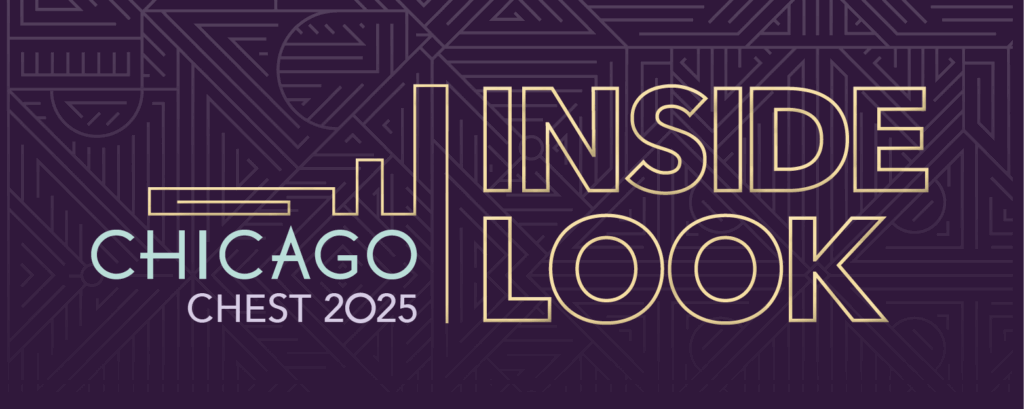Get a head start on your CHEST 2025 educational experience with specialized premeeting courses dedicated to the latest practical knowledge and procedural skills.
Registration is now open for three types of interactive courses that will be held Saturday, October 18, in Chicago. Postgraduate courses will provide comprehensive reviews of foundational topics, Master Classes will expand upon attendees’ existing knowledge of complex concepts, and simulation courses will offer immersive training with advanced clinical procedures. Sessions are available as an add-on through the CHEST 2025 online registration form, but full meeting registration is not required in order to sign up.

Unlike other opportunities offered during the annual meeting, full- and half-day blocks of time for these sessions are unopposed by other programming. Smaller group sizes facilitate more personal, hands-on instruction from expert faculty. All together, it’s a uniquely effective environment for in-depth learning, said CHEST Education Committee Chair Hans Lee, MD, MEHP, FCCP.
“These courses are for people who really want to hone in on a specific subject at a specific time,” Dr. Lee said. “We know that clinicians are very busy. Sometimes, given time constraints, we’re not able to stay for the entire meeting or accomplish everything that we want to do. CHEST tries to make it as flexible as possible for people to learn specifically what they want to learn.”
Some popular premeeting courses from past years will be available again, including the full-day Pulmonary Literature Review and Interactive Complex Case Presentations and a half-day postgraduate course on pulmonary hypertension. Others have been reorganized entirely, including past sessions on asthma and COPD that have merged into a single Obstructive Lung Disease Academy Master Class.
Of note this year, simulation sessions on ultrasound-guided pleural procedures and airway management skills will utilize cadavers for the first time since before the pandemic. And across the board, courses will incorporate improved interactivity and other enhancements based on feedback from participants and master educators.
Those changes—combined with fresh perspectives from new faculty and the rapid pace of change in pulmonary and critical care medicine—should encourage past attendees to consider signing up for topics again, Dr. Lee said.
“Especially for our Master Class sessions, no one can be an expert in everything,” he said. “I’ve had faculty members of these courses, who are experts, excited to come not only because they have an opportunity to share their experiences but also they get to learn alongside other experts as well. I think no matter how much experience you have, how much knowledge you have, there’s always an opportunity to learn something new.”
Saturday, October 18
Full-Day Postgraduate Courses
Pulmonary Literature Review and Interactive Complex Case Presentations
7:30 am – 5 pm
This high-level literature review will cover key topic areas in pulmonary medicine, including bronchiectasis and nontuberculous mycobacterial lung disease, asthma, COPD, lung cancer, interstitial lung disease, women’s lung health, pulmonary hypertension, and pneumonia. Hear complex case presentations featuring published evidence and expert opinions on the management of each case.
Educator Development Course (Limited Seating)
8 am – 4:30 pm
The CHEST Educator Development Course will present participants with the skills to effectively deliver engaging, learner-centered education using a framework of adult learning theories and medical education principles. The course will utilize a combination of flipped classroom techniques and active learning to provide training on teaching (interactive teaching, simulation for procedures), curriculum development (goals and objectives, needs assessment), and assessment (test question writing, procedural assessment) skills. In addition, best practices for delivering feedback, debriefing after procedures, and safeguards to ensure psychological safety will be emphasized.
Leadership Development Course (Limited Seating)
8 am – 4:30 pm
Leadership competencies are critically important for physicians to navigate clinical practice, research, and administrative roles. Yet, leadership competencies, which are different than clinical or scientific competencies, are not included in traditional medical curricula. Some would even argue that the frequent “command and control” leadership style seen in health care creates a “hidden curriculum,” which handicaps physicians who remain unexposed and unaware of the fuller palate of leadership competencies and styles. This course reviews some essential leadership competencies for emerging physician leaders. Specifically, the course will use an experiential and highly participatory approach to develop an awareness of the attributes of an effective leader, the features of an effective team, and a useful approach to conflict management.
Half-Day Postgraduate Courses
Pulmonary Hypertension: From Basics to Bedside and Theory to Therapy
7:30 am – 12 pm
Join us for this high-energy, hands-on course designed for pulmonologists ready to tackle the complexities of pulmonary hypertension (PH). In this immersive learning session, experts will lead discussions on conquering challenging cases, address evolving definitions, and model cutting-edge therapies. You’ll dive into real-world cases, interpret pulmonary artery waveforms, and decode chronic thromboembolic pulmonary hypertension imaging like a pro. With interactive workshops, small-group challenges, and expert-led insights, you’ll leave with the tools and confidence to optimize PH care.
Full-Day Master Classes
Obstructive Lung Disease Academy: Hands-On Skills…Real Cases, Lasting Impact
7:30 am – 5 pm
Join us for immersive workshops on asthma, COPD and noncystic fibrosis bronchiectasis designed for advanced frontline pulmonary specialists. Connect with one or more of 14 expert facilitators and up to 10 of your colleagues at each round table to dive into clinical cases and hands-on demonstrations. Explore emerging therapies, including the latest biologics and endobronchial valves, and gain hands-on experience with inhalers, nebulizers, oxygen, and airway clearance devices.
Half-Day Master Classes
Critical Care: Cutting Edge and Beyond the Evidence
1 pm – 5:30 pm
This Master Class will explore how to incorporate recent critical care clinical trial results into patient management. Subject matter experts will discuss disease states where robust evidence is lacking, as well as disease states where new evidence has come to light that raises questions about previous best practices. Attendees will be immersed in discussions of which diagnostics and therapeutics should be utilized in various patient cases, including pros and cons of each choice.
Interstitial Lung Diseases: Case Studies and Multidisciplinary Discussions
1 pm – 5:15 pm
This will be a high-level learning experience encompassing a variety of interstitial lung diseases. Learning will take place in a dynamic setting that includes a case presentation and didactic session followed by a panel discussion by a panel of multidisciplinary experts. We will have audience response questions and ask the audience to ask questions to the panel as well.
Full-Day Simulation Courses
Advanced Critical Care Echocardiography: A Hands-On Simulation Course
7:30 am – 5:30 pm
This course will provide training in advanced critical care echocardiography, including image interpretation, image acquisition, and clinical applications. The learners will engage in small-group, hands-on training alternating with case-based image interpretation. Brief, focused, didactic lectures will be incorporated into the training sequence and include real-time demonstration scanning. This course is intended for the clinician who already has skill at basic critical care echocardiography and who seeks to augment their capability with additional 2D views and Doppler measurements of cardiac function.
Advanced Robotic and Navigational Bronchoscopy: A Hands-On Simulation Course
7:30 am – 5 pm
In the rapidly evolving field of bronchoscopy and lung nodule evaluation, this course is designed to equip practicing pulmonologists with essential skills for advanced diagnostic procedures. It covers various techniques such as robotic bronchoscopy, electromagnetic navigational bronchoscopy, radial probe endobronchial ultrasound (EBUS), and linear probe EBUS. The course emphasizes hands-on procedural training and a flipped classroom approach, focusing on evaluating pulmonary nodules, lung cancer screening, diagnosis, and staging. This course aims to bridge the gap in technological advancements for bronchoscopic biopsies of peripheral lung lesions.
Half-Day Simulation Courses
Advanced Skills in Ultrasound-Guided Pleural Procedures: A Hands-On Cadaver-Based Simulation Course
7:30 am – 11:30 am
Pneumothorax and pleural effusions are common and critical conditions for pulmonary and critical care providers. Effective management requires proficiency in chest tube and tunneled pleural catheter placement. Cadaveric models provide an unparalleled opportunity to replicate authentic pleural pathologies, allowing learners to explore thoracic anatomy, enhance ultrasound interpretation, and experience realistic procedural feedback. This simulation course, led by expert faculty, offers small-group instruction to teach step-by-step placement and management techniques. Participants will gain confidence in performing ultrasound-guided chest tube and tunneled catheter insertions while understanding their roles in managing pleural diseases, including malignant pleural effusions and pneumothorax.
Advanced Skills in Airway Management: A Hands-On Cadaver-Based Simulation Course
1:30 pm – 5:30 pm
ICU airways are not operating room airways. Severe complications occur in nearly 50% of ICU intubations. This course provides participants with the knowledge and technical skills to safely manage difficult ICU airways using advanced, state-of-the-art equipment. Airway assessment, the CHEST Airway APPROACH, and Difficult Airway Algorithm will be reviewed during the course. In addition, employing human cadaver models, participants will learn and practice advanced airway skills, including direct and video laryngoscopy, bougies, fiber-optic nasal and oral intubation, intubating extraglottic airways, and cricothyrotomy.

Call for Topics Is Open
Feeling inspired by all the great sessions in Chicago? Help shape the curriculum for CHEST 2026, October 18 to 21 in Phoenix, by submitting topic ideas from areas you’re passionate about, topics affecting your practice, or new technologies you’d like to learn more about. The submission deadline is Tuesday, December 2, at 2 pm CT.


